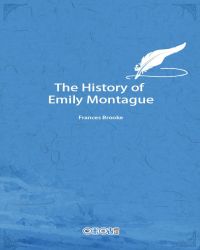LETTER CCXXIV.228.
LETTER CCXXIV.228.
To Mrs.Fitzgerald.
Bellfield, Tuesday.
I accept your challenge, Bell; and am greatly mistaken if you find me so very insipid as you are pleased to suppose.
Have no fear of falling into vegetation; not one amongst us has the least vegetative quality.
I have a thousand ideas of little amusements, to keep the mind awake.
None of our party are of that sleepy order of beings, who want perpetual events to make them feel their existence: this is the defect of the cold and inanimate, who have not spirit and vivacity enough to taste the natural pleasures of life.
Our adventures of one kind are at an end; but we shall see others, as entertaining, springing up every moment.
I dare say, our whole lives will be Pindaric: my only plan of life is to have none at all, which, I think, my little Bell will approve.
Please to observe, my sweet Bell, to make life pleasant, we must not only have great pleasures but little ones, like the smaller auxiliary parts of a building; we must have our trifling amusements, as well as our sublime transports.
My first second pleasure (if you will allow the expression) is gardening; and for this reason, that it is my divine Emily’s: I must teach you to love rural pleasures.
Colonel Willmott has made me just as rich as I wish to be.
You must know, my fair friend, that whilst I thought a fortune and Emily incompatible, I had infinite contempt for the former, and fancied that it would rather take from, than add to, my happiness; but, now I can possess it with her, I allow it all its value.
My father (with what delight do I call the father of Emily by that name!) hinted at my taking a larger house; but I would not leave my native Dryads for an imperial palace: I have, however, agreed to let him build a wing to Bellfield, which it wants, to compleat the original plan, and to furnish it in whatever manner he thinks fit.
He is to have a house in London; and we are to ramble from one to the other as fancy leads us.
He insists on our having no rule but inclination: do you think we are in any danger of vegetating, my dear Bell?
The great science of life is, to keep in constant employment that restless active principle within us, which, if not directed right, will be eternally drawing us from real to imaginary happiness.
Love, all charming as it is, requires to be kept alive by such a variety of amusements, or avocations, as may prevent the languor to which all human pleasures are subject.
Emily’s tenderness and delicacy make me ever an expecting lover: she contrives little parties of pleasure, and by surprize, of which she is always the ornament and the soul: her whole attention is given to make her Rivers happy.
I envy the man who attends her on these little excursions.
Love with us is ever led by the Sports and the Smiles.
Upon the whole, people who have the spirit to act as we have done, to dare to chuse their own companions for life, will generally be happy.
The affections are the true sources of enjoyment: love, friendship, and, if you will allow me to anticipate, paternal tenderness, all the domestic attachments, are sweet beyond words.
The beneficent Author of nature, who gave us these affections for the wisest purposes—
“Cela est bien dit, mon cher Rivers; mais il faut cultiver notre jardin.”
You are right, my dear Bell, and I am a prating coxcomb.
Lucy’s post-coach is just setting off, to wait your commands.
I send this by Temple’s servant.On Thursday I hope to see our dear groupe of friends re-united, and to have nothing to wish, but a continuance of our present happiness.
Adieu!Your faithful
Ed.Rivers. The History of Emily Montague




